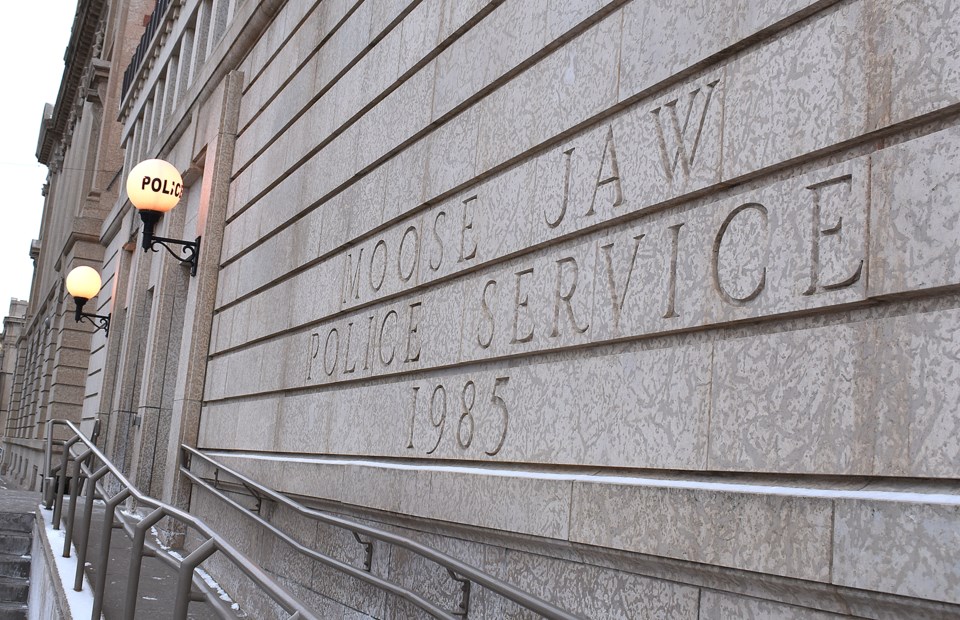A hearing officer has decided that a former Moose Jaw police constable, Alan Murdock, can appeal his dismissal even though he was on probation at the time of his firing.
Furthermore, the hearing officer determined that he has the jurisdiction to hear the dismissal complaint, even though section 67 (2) The Police Act says a hearing officer cannot review a complaint from an officer on probation.
Murdock’s second public hearing was held by telephone on April 20. The hearing officer produced a written interim decision and posted it to the Saskatchewan Police Commission website.
Murdock was a police officer in Moose Jaw from 1999 until his dismissal on June 19, 2019.
Hearing officer’s decision
Hearing officer Jay Watson explained that he had to consider two questions to determine whether the appeal could proceed. One question was whether a “probationary member” had the right to appeal an order made under section 60 of The Police Act. A second question was whether Murdock was a “probationary member” of the Moose Jaw Police Service at the time of his dismissal.
Question 1
Watson pointed to section 60 of the act, which allows a chief of police to take action — to dismiss, demote, reprimand, suspend or place on probation — against an officer if the member:
- Has “rendered himself or herself unsuitable for police service by having been found guilty of an offence” under the Criminal Code, an act of the Parliament of Canada, or any other act
- Or in a manner that, despite the best remedial efforts, renders the member unsuitable, or establishes the member as incompetent, for the police service
The chief must also be satisfied that the member’s deficiencies were brought to the member’s attention; the member was given opportunity to bring his or her performance to an acceptable level or standard; and the member was afforded treatment, training, guidance, coaching or counselling to reach that acceptable level or standard.
Section 67 says the police chief may take any of the above actions against a probationary member, Watson wrote. Furthermore, section 67 “makes it clear that a probationary member cannot appeal a section 60 dismissal.” Using previous case law examples to bolster section 67’s authority, he wrote that the probationary member does not have the right to appeal, “and therefore, a hearing officer does not have jurisdiction to hear the matter.”
Question 2
Since the act does not define a probationary member, Watson turned to the Supreme Court of Canada (SCC) for an interpretation. The SCC ruled in 2002 that “the words of an act are to be read in their entire context and in their grammatical and ordinary sense harmoniously with the scheme of the act, the object of the act, or the intention of Parliament.”
At the April 7 hearing, Moose Jaw Police Chief Rick Bourassa argued there were two ways to define a probationary member. First, a probationary member could be someone new to the police service and a first-year member. Second, a probationary member could be someone who has completed an initial work period but is later placed on probation due to disciplinary issues.
Conversely, Murdock argued a probationary member should only refer to a new member and should not apply to someone placed on disciplinary probation.
After consideration, Watson decided a new member on probation is different from an established member placed on disciplinary probation, since the law states a new probationary member cannot appeal his or her dismissal.
“The situation with a long-standing member is quite different,” Watson wrote.
Such a member placed on probation has committed a breach that requires discipline short of dismissal. In contrast, the police service could dismiss a member if he or she committed another infraction, he continued. It seemed reasonable that the member had the right to challenge the dismissal order.
It seemed “incongruous” to Watson that a member could have a hearing for actions that led to probation, but could not appeal or have a hearing over actions the member allegedly committed on probation.
Therefore, Watson decided Murdock could appeal the dismissal order since the term “probationary member” means someone who is new and has not passed his or her initial period of work probation.
Facts of dismissal
According to evidence presented during the hearing, Chief Bourassa issued a remedial order of discipline on May 22, 2019, an order that Murdock consented to and where he agreed to be placed on probation for 12 months.
The remedial action also included a reprimand for neglect of duty, suspension without pay for five days (60 hours), probation, and close supervision for six months.
While on probation, Murdock committed two acts contrary to section 60 of The Police Act:
- On May 31, 2019, as a result of multiple violations of The Local Authority Freedom of Information and Protection of Privacy Act, a superior officer gave Murdock a direct order to contain breaches of privacy, an order he disobeyed;
- On June 19, 2019, Murdock provided misleading, false and inaccurate statements to an interviewer in an internal investigation about his misconduct.
These acts, and the fact they occurred while Murdock was on probation, were included in the section 60 dismissal order provided to him on June 19.




